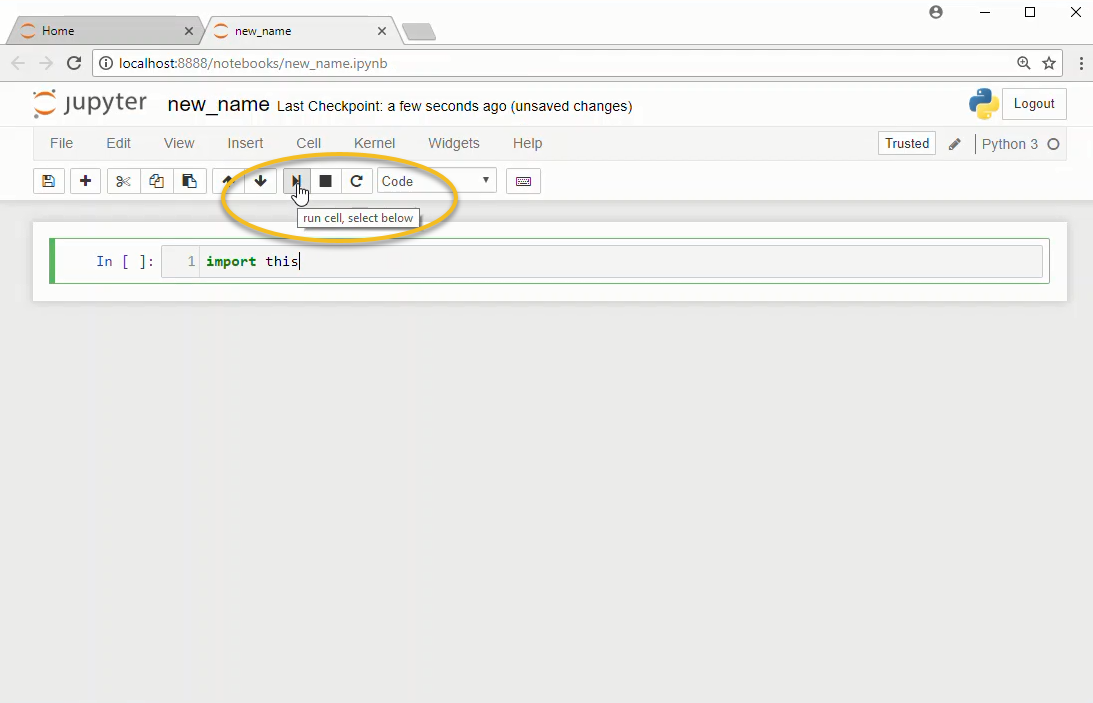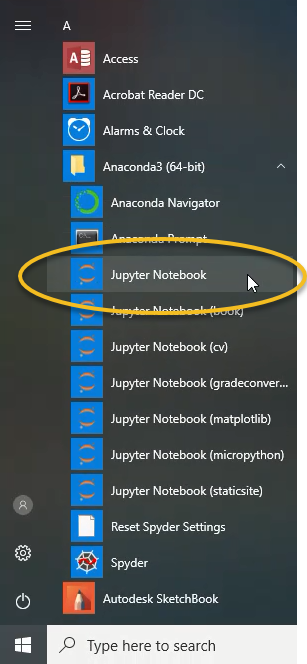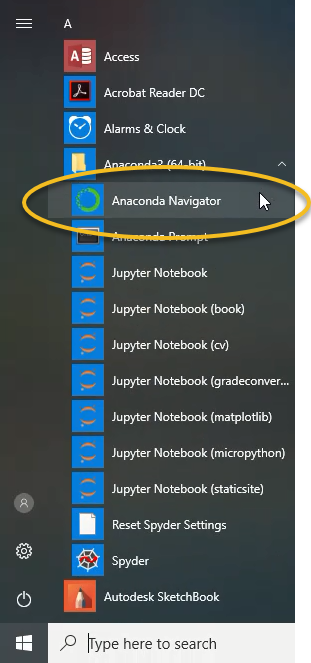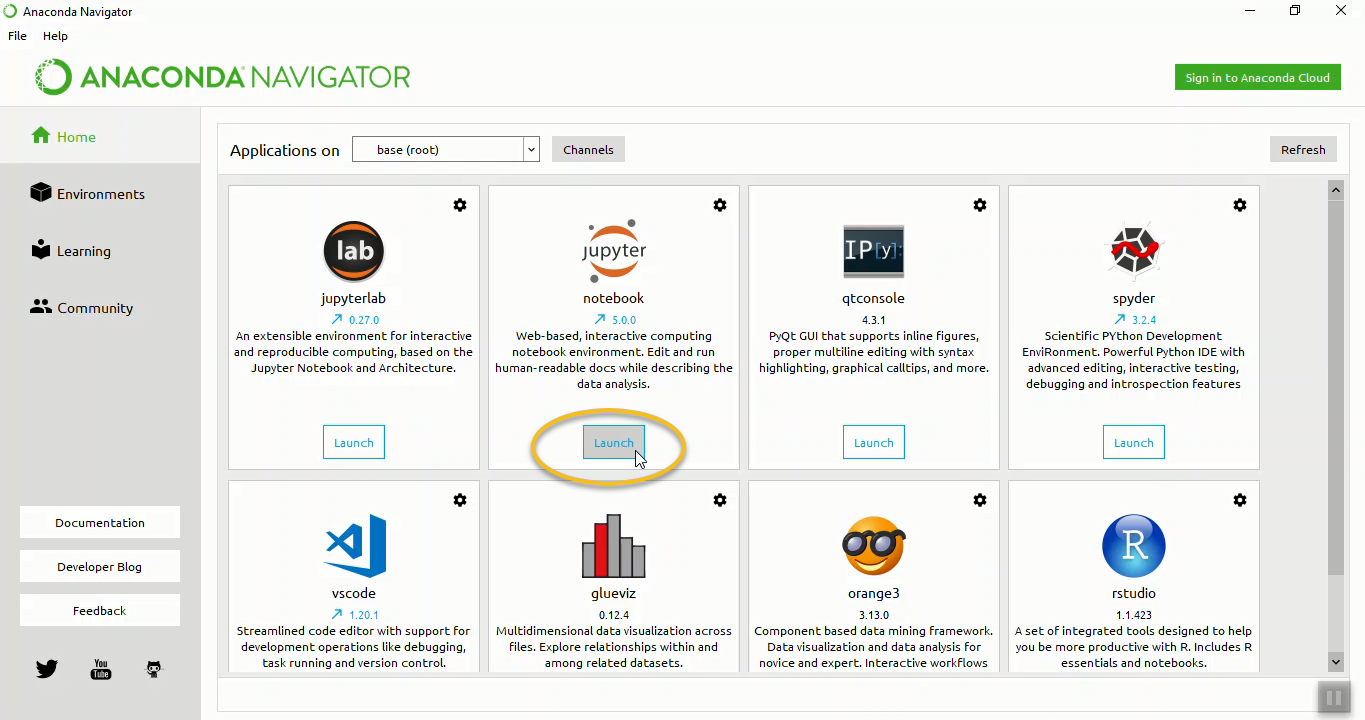1.3. How to Open a Jupyter Notebook#
In this section, we will run through how to open a Jupyter notebook on Windows 10. Jupyter notebooks are one way engineers can write and execute Python code. Jupyter notebooks contain Python code, the output of that code produces when it is run and markdown cells to explain what the code means. A Jupyter notebook can be started from the Anaconda Prompt, the Windows Start Menu or by using the Anaconda Navigator.
3 ways to open a Jupyter notebook:#
Anaconda Prompt
Windows Start Menu
Anaconda Navigator
1. Anaconda Prompt#
The first way to start a new Jupyter notebook is to use the Anaconda Prompt.
Go to the Windows start menu and select [Anaconda Prompt] under [Anaconda3].
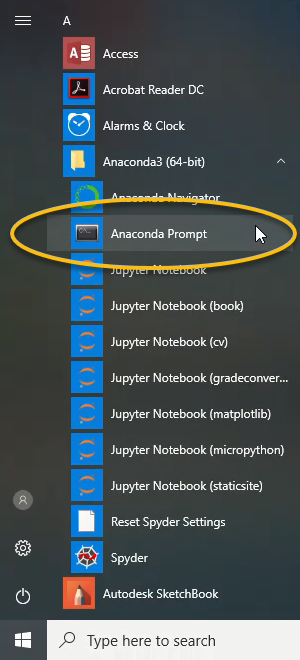
If you don’t see the Anaconda Prompt in the Windows Start Menu, then you need to install Anaconda. Download Anaconda at the following link: Anaconda.com/distribution
The Anaconda Prompt window should look something like the image below:

At the Anaconda Prompt type:
> jupyter notebook
This command starts a Jupyter notebook. The output in the terminal will look something like the output shown below:
Copy/paste this URL into your browser when you connect for the first time,
to login with a token:
http://localhost:8888/?token=6bdef677d3503fbb23e1b4fa0c802ee7c20bdcfd4d9b9951
[I 16:14:12.661 NotebookApp] Accepting one-time-token-authenticated connection from ::1
A web browser should open and you should be able to see the Jupyter file browser:
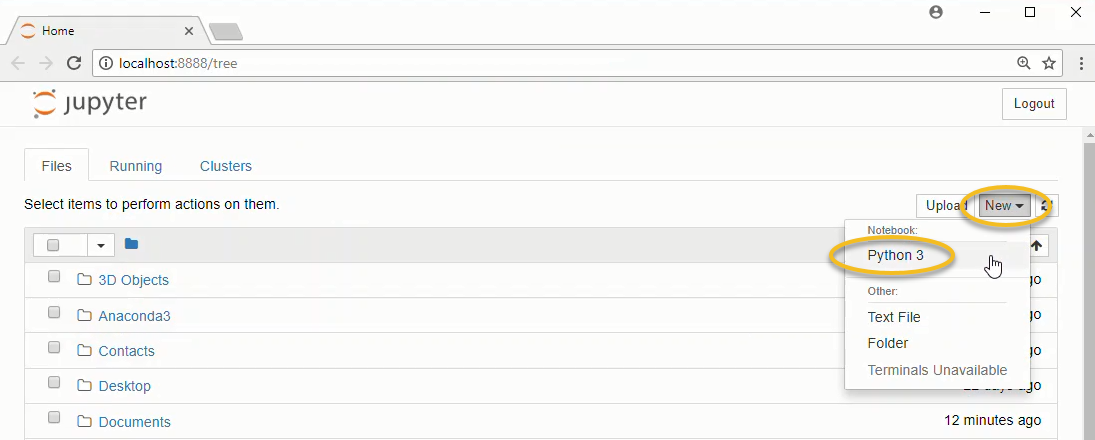
In the upper right select [New] –> [Python 3]
You will see a new tab open in your web browser. This new browser tab is a Jupyter notebook.
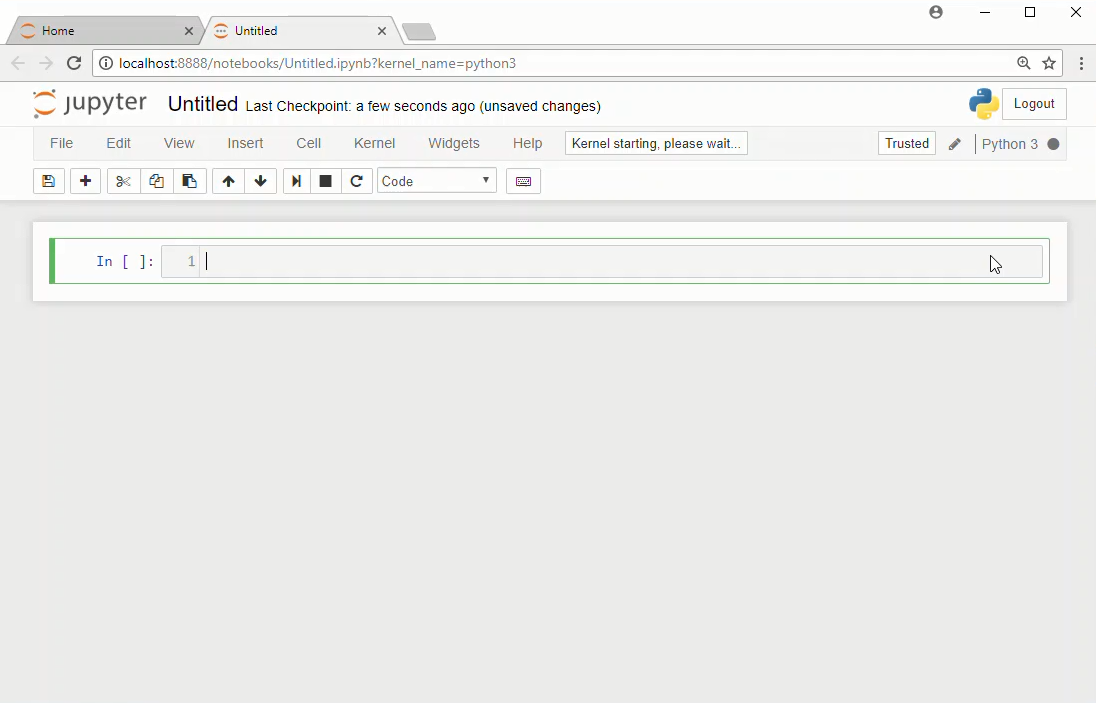
To rename the Jupyter notebook, click the file name at the top of the page to the right of the Jupyter icon.
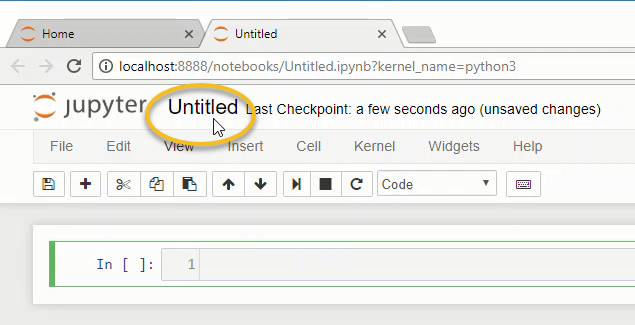
This opens a dialog box where the new name can be typed.

Try typing the code below into the first cell in the Jupyter notebook to the right of the In [ ]: prompt
import this
Then click the run button in the middle of the menu at the top of the notebook.
